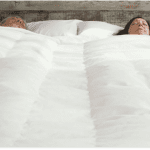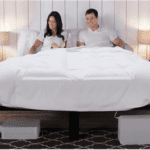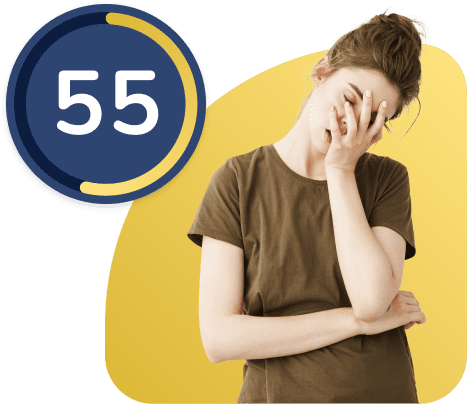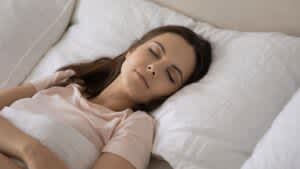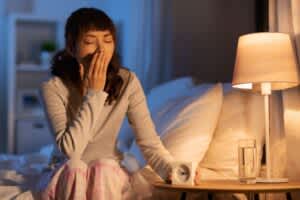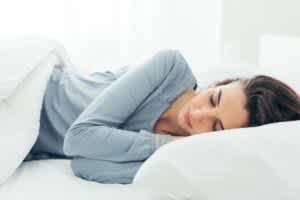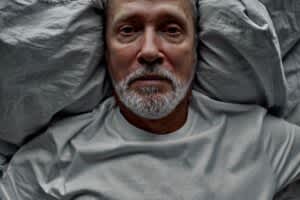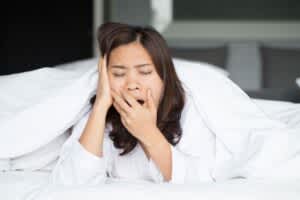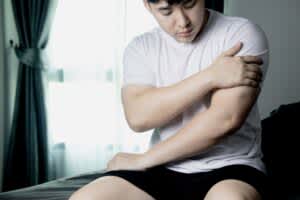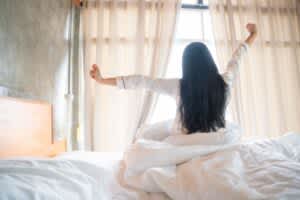There are many reasons why people stay awake late. Unfortunately, if you have obligations in the morning, these late nights likely mean lost sleep.
Sleep needs vary by age, but throughout the lifespan, getting enough sleep is critical to your overall health. Sleep plays an important role in regulating a wide range of biological functions, from mood and memory to metabolism and cardiovascular health. Although experts recommend at least seven hours of sleep for adults, over one-third of U.S. adults fall short of these recommendations.
For many people, going to bed earlier is the key to getting a full night of sleep. Like any habit, it can take time to establish a new sleep routine. However, certain cues can help encourage your body to feel sleepy earlier in the evening. We discuss the best ways to adapt your nightly schedule so that you can successfully fall asleep earlier in the evening.
Maintain a Consistent Sleep Schedule
The first step is to create a regular sleep schedule. This means trying to go to bed and wake up at the same time every day, even on weekends. Research suggests that following a structured schedule helps sleepers go to bed and get up earlier, with less variability in total sleep time each night.
Maintaining a consistent sleep schedule may also help you better align your sleep timing with your body’s natural circadian rhythm. When your sleep hours line up with this internal clock, you tend to sleep for longer and experience higher-quality sleep. You may find it easier to gradually shift your bedtime over a few nights instead of abruptly trying to go to sleep two hours earlier.
Develop an Evening Routine
One way to maintain a consistent sleep schedule is to develop a regular evening routine. Routines are a powerful tool for changing human behavior.
Choose a few activities that you find relaxing to perform each night around bedtime. The following activities may help you wind down and prepare for sleep:
- Taking a warm bath or shower
- Reading a book
- Listening to music
- Writing a to-do list for tomorrow
- Practicing mindfulness meditation
You can adapt your evening routine according to the activities that work for you, but try to establish a regular pattern of doing the same activities every night. Remember to leave extra time for your routine so it does not cut into your sleep time.
Minimize Blue Light Exposure and Technology Use Before Bed
Exposure to bright light in the evening can inhibit the secretion of melatonin, the sleep hormone, and make it difficult to fall asleep early.
Electronic devices such as smartphones, tablets, computers, and TVs emit a particularly high-energy type of light called blue light. Blue light exposure during the day is important for staying alert, but humans are especially sensitive to this high-energy light input at night, so it is best to put these devices away in the lead-up to bedtime.
Create a Better Bedroom Environment for Sleep
In addition to blocking out light, experts recommend keeping the bedroom quiet and slightly on the cooler side to optimize sleep.
The body’s internal sleep clock is highly dependent on temperature. During the transition from wakefulness to sleep, core body temperature drops. A bedroom temperature between 66 and 70 degrees Fahrenheit (19 and 21 degrees Celsius) helps facilitate the transition to sleep.
Too much noise in your bedroom can also disturb sleep and increase stress levels. If you are unable to ensure a quiet environment for sleep, you can use earplugs, a fan, or a white noise device to help drown out disruptive background noise.
To reinforce the idea that the bedroom is for sleeping, avoid staying in bed awake for longer than 20 minutes. If you have not fallen asleep by this time, go to another room and do a quiet activity in low light until you feel sleepy again.
Avoid Caffeine Later in the Day
The average American consumes about 165 milligrams of caffeine every day, or just under two 8-ounce cups of coffee. Sugary drinks may also contain a significant percentage of caffeine. While caffeine can be an effective and inexpensive productivity tool, it can also cause sleep problems.
Caffeine promotes arousal by affecting levels of adenosine, a substance that helps regulate sleep. These alerting effects can last for up to six hours, so try to limit caffeine in the afternoon and evening. Other substances to avoid in the evening include nicotine and alcohol.
Exercise During the Day
Research suggests that exercise can also influence the timing of the sleep-wake cycle. One study found that pairing bright light exposure during the day with two hours of daily exercise helped participants move their bedtimes significantly earlier. Be sure to wrap up your exercise session well before bedtime to give yourself time to wind down.
Other factors like late afternoon naps or large dinners may also affect your nighttime sleep. However, if you still have trouble falling asleep after adjusting your sleep schedule, consider talking to your doctor. They may be able to identify an underlying sleep disorder and help you get treatment.
References
The Sleep Doctor Forum: Real Experiences, Real Connections
Continue the discussion on the Sleep Doctor Forum. Connect with experts and fellow forum members on CPAP, sleep apnea, and all things sleep. A priceless resource that’s free to join.













